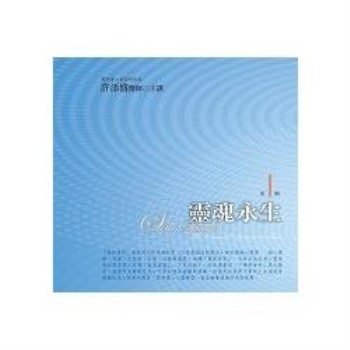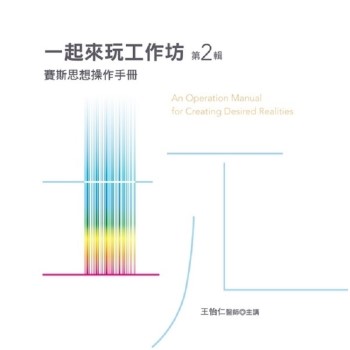Franco Maloberti received his Laurea Degree (Summa cum Laude) from the University of Parma, Italy, and his Dr. Honoris Causa degree from Inaoe, Mexico in 1996. He was a Visiting Professor at ETH-PEL, Zurich in 1993 and at EPFL-LEG, Lausanne in 2004. He was the TI/J. Kilby Chair at the Texas A&M University and the Microelectronic Chair at the University of Texas at Dallas. Currently, he is a Professor at the University of Pavia, Italy, and an Honorary Professor at the University of Macau, China. He has written more than 500 published papers, 6 books, and holds 34 patents. He is the Chairman of the Academic Committee of the Microelectronics Key Lab. Macau, China. He is the President of the IEEE CAS Society, he was VP Region 8 of IEEE CAS, AE of IEEE-TCAS-II, President of the IEEE Sensor Council, IEEE CAS BoG member, VP Publications IEEE CAS, DL IEEE SSC Society, and DL IEEE CAS Society. He received the 1999 IEEE CAS Society Meritorious Service Award, the 2000 CAS Society Golden Jubilee Medal, the IEEE 2000 Millenium Medal, the 1996 IEE Fleming Premium, the ESSCIRC 2007 Best Paper Award, and the IEEJ Workshop 2007 and 2010 Best Paper Award. He received the IEEE CAS Society 2013 Mac Van Valkenburg Award. He is an IEEE Life Fellow.
Anthony C. Davies born in Rainham, Kent, England, 1936. He has B.Sc.(Eng) Electrical Engineering, 1st Class Hons (1963) Southampton University and M.Phil. (1967) University of London, PhD (1970) City University London. He has worked at General Electric Co. in Coventry (1961-63), mainly on filter design and PCM systems design. He has been a Lecturer (1963), Reader (1970) and Professor and Director, Centre for Information Engineering (1982) at City University, London, and Professor, Department of Electronic Engineering, King’s College London (1990-99). Visiting appointments: One year as Lecturer, University of British Columbia (1968-69); one year as Visiting Full Professor, Purdue University (1973-74); one year as Royal Society Fellowship, British Aerospace, Army Weapons Division, Stevenage (1987-88). He was consultant to Admiralty Underwater Weapons Establishment, Portland, Dorset, retiring in 1999. He was awarded the title ’Emeritus Professor’ at King’s College London where he is Visiting Professor (2002-present). IEEE services: Region 8 History Activities Coordinator, IEEE History Committee; IEEE Region 8 Director and member of IEEE Board of Directors (2003-2004); Region 8 Vice President of CAS Society (January 1998 to December 2001). He has served as chair of the UKRI Circuit Theory Chapter (later Circuits and Systems) and of the IEE Professional Group on Circuit Theory and Design. Memberships and Awards: Chartered Engineer, IET Fellow, BCS Member and IEEE Life Fellow, CAS Society Jubilee medal, IEEE Millennium medal in 2000.
Yongfu Li is currently an Associate Professor with the Department of Micro and Nano Electronics Engineering and MoE Key Lab of Artificial Intelligence, Shanghai Jiao Tong University, China. He was a research engineer with NUS, from 2013 to 2014. He was a senior engineer (2014-2016), principal engineer (2016-2018), and member of technical staff (2018-2019) with GLOBALFOUNDRIES, as a Design-to-Manufacturing (DFM) Computer-Aided Design (CAD) research and development engineer. He is currently serving on the IEEE CASS Board of Governors (R10 Member At Large), is the IEEE CASS Standard Activities Sub Division Chair and IEEE APCCAS Steering Committee Chair, is on the IEEE DataPort Steering Committee, is senior editor of IEEE JETCAS and associate editor of IEEE TBioCAS, and was a past Associate Editor-in-Chief of IEEE OJCAS. He has been involved in different roles in many prestigious IEEE CASS conferences (ISCAS, ISICAS, AICAS, NEWCAS, ISVLSI, ASP-DAC, and APCCAS) and regional activities. He has organized several special sessions and issues in IEEE CASS journals and conferences.
Fidel Makatia Omusilibwa earned his B.Sc. in Electrical and Electronics Engineering summa cum laude from Kenyatta University in Nairobi, Kenya. Currently, he is pursuing his Ph.D. at Texas A&M University, focusing on analog and mixed signal integrated circuits under the guidance of Dr. Jose Silva-Martinez. He is an active IEEE CAS Volunteer, having served as the founding chair of the CAS Kenya chapter, the Young Professionals representative on the CAS BoG from 2022 to 2023, and the CAS ambassador for Africa. He led the development of the Tibavent ventilator, a landmark achievement as the first-ever African-designed and developed ventilator. He also led the KUCUBE nano satellite project, aimed at utilizing satellite technology for agricultural disaster prediction and mitigation in Kenya. His exceptional contributions have garnered recognition on both national and international platforms. In 2020, he was honored with the United Nations Person of the Year - Principal Innovator Award for his groundbreaking work on the Tibavent ventilator. He was also awarded the Head of State presidential award in 2020. His dedication to volunteerism within the IEEE community was recognized with the prestigious 2021 IEEE MGA Larry K Wilson Region 8 award.
Hanho Lee received his M.Sc and Ph.D. degrees, both in Electrical & Computer Engineering, from the University of Minnesota, Minneapolis, USA, in 1996 and 2000, respectively. In 1999, he was a Member of Technical Staff-1 at Lucent Technologies, Bell Labs, Holmdel, New Jersey, USA. From April 2000 to August 2002, he was a Member of the Technical Staff (MTS) at Lucent Technologies (Bell Labs Innovations), Allentown, USA, where he was involved in the design of DSP multi-processor architecture. From August 2002 to August 2004, he was an Assistant Professor at the Department of Electrical and Computer Engineering, University of Connecticut, USA. Since September 2004, he has been with the Faculty of the Department of Information and Communication Engineering, Inha University, Incheon, South Korea, where he is currently a Full Professor. He leads the Digital Integrated Systems Lab and is the Director of the Artificial Intelligence System on Chip (AI-SoC) Research Center, the Inha University. He was a Visiting Researcher with the Electronics and Telecommunications Research Institute (ETRI), South Korea, in 2005. He was a Visiting Scholar with Bell Labs, Alcatel-Lucent, Murray Hill, USA, from 2010 to 2011, and a Visiting Professor with The University of Texas at Dallas, USA, from 2017 to 2018. His research interests include algorithm and VLSI architecture design for post-quantum cryptography, homomorphic encryption, forward error correction coding, artificial intelligence, and digital signal processing. He served as a General Chair for ISICAS and Technical Program Chair for ISCAS and APCCAS. He was the Chair of the IEEE Circuits and Systems for Communications Technical Committee (CASCOM). He was a Board of Governor (BoG) of the IEEE Circuits and Systems Society (CASS), from 2020 to 2023. He is the Vice President of Technical Activities of the IEEE CASS.
Fakhrul Zaman Rokhani received his Ph.D. degree from the University of Minnesota, USA. He is an associate professor at the Universiti Putra Malaysia and heads the Smart System and System-on-Chip (S3oC) research group. He was with Intel Penang Design Center and Huawei Technologies as a visiting professor, a visiting scholar at the ASIC & Systems State Key Lab at Fudan University, and a visiting professor at several other universities. His current research interests include low-power/energy-efficient system-on-chip (SoC) design and automation, IoT system integration, and sensors for food quality applications. In 2023, he co-founded a startup company focusing on low-power IPs. He serves as Vice President of Education and Communications for the CAS Society and the steering committee of IEEE Future Direction - Global Semiconductors at IEEE. On the publication front, he has been contributing as an Associate Editor of TCAS-I, Associate Editor of the CAS Society newsletter, Guest Editor of TCAS-I and TCAS-II, and Technical Program/Publication Chair/Track chairs/Embedded Workshop Chair of several IEEE CASS conferences.












